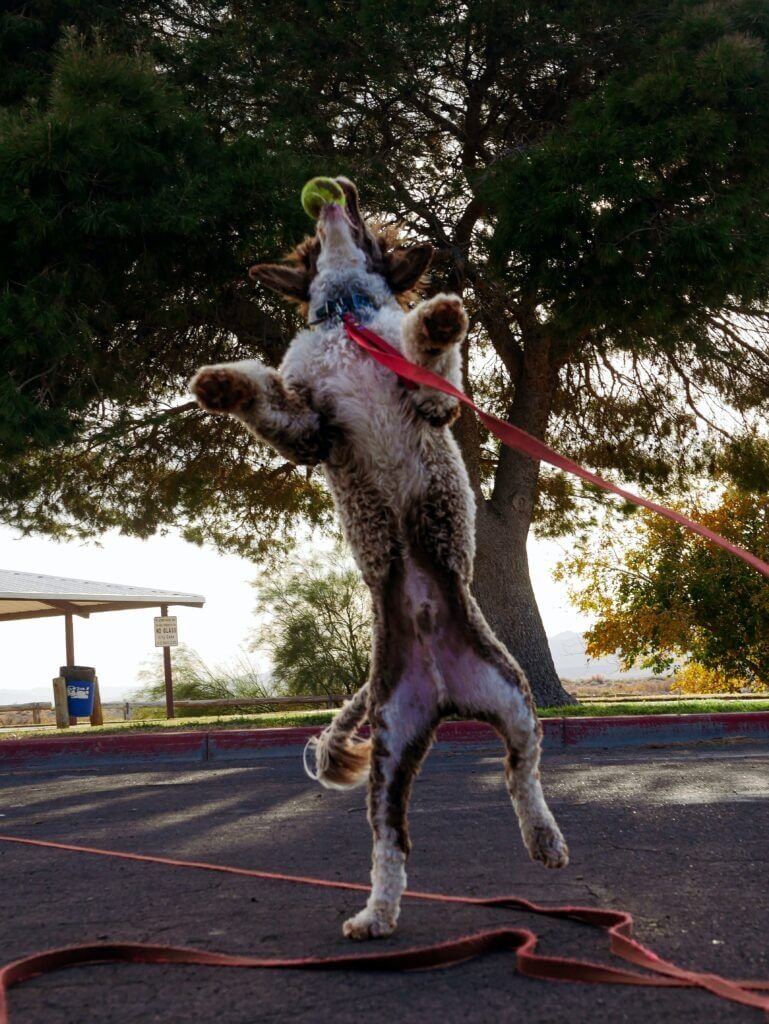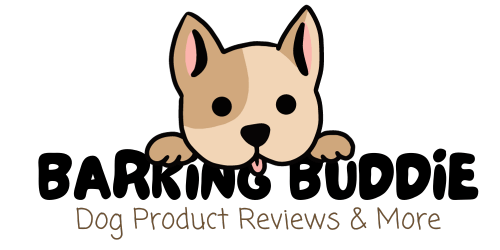You may already know that having a healthy dog is essential for their overall well-being, but do you know how to spot the signs? A healthy dog will have a shiny coat, bright eyes, and a playful demeanor. They will have a good appetite, regular bowel movements, and maintain a healthy weight. Keep an eye out for these indicators to ensure that your furry friend is in the best possible shape.

Physical Appearance
Shiny Coat
A healthy dog will have a shiny coat that glistens in the sunlight. You will notice that the fur is smooth and lustrous, indicating that it is well-nourished and properly hydrated. The sheen in their coat is a sign of good health and overall well-being.
Bright Eyes
The eyes are often referred to as the windows to the soul, and in the case of dogs, they can also give us clues about their health. Bright and clear eyes with minimal discharge indicate a healthy dog. If you notice any redness, cloudiness, or excessive tearing, it may be a sign of underlying health issues that require attention.
Clean Ears
Healthy dogs have clean ears without any foul smell or excessive wax buildup. You should be able to inspect the inner part of your dog’s ears without triggering discomfort or irritation. Regular cleaning and maintenance can help prevent ear infections and keep your furry friend’s ears in good shape.
Moist Nose
Contrary to popular belief, a dry nose does not necessarily indicate illness in dogs. However, a moist nose is generally a sign of good hydration and healthy mucus production. A dry or cracked nose can be a sign of dehydration or other health concerns. Monitoring your dog’s nose can provide valuable insights into their overall well-being.
Healthy Weight
Body Condition Score
Assessing your dog’s body condition score is an effective way to determine if they are at a healthy weight. Ideally, you should be able to feel their ribs without excess fat covering them, but they should not be overly prominent. A healthy weight ensures optimal organ function and reduces the risk of obesity-related health issues.
Visible Ribcage
A healthy dog may have a faint outline of their ribcage visible under their skin. This does not mean they are underweight; rather, it is an indication of a lean body composition. If the ribcage is excessively prominent, it could signal malnutrition or other underlying health problems and might require veterinary attention.
Easily Felt Ribs
When you gently run your hands along your dog’s side, you should be able to feel their ribs easily but without excessive pressure. This indicates a healthy layer of muscle and a lack of excess fat. If you have to apply significant pressure or can’t sense the ribs at all, it may be an indication of obesity or muscle loss.
Proportionate Body Shape
A healthy dog will have a proportionate body shape. Their waistline should be visible behind their ribcage, and their abdomen should tuck up slightly when viewed from the side. If your dog appears round or bulging in certain areas, it could be a sign of weight gain or even an underlying medical condition.

Energetic Behavior
Playfulness
One of the most evident signs of a healthy dog is their playful behavior. Dogs that are full of energy and enjoy engaging in games and activities are often a reflection of their physical and mental well-being. If your dog is eager to chase a ball or play tug-of-war, it generally indicates that they are in good spirits and feeling strong.
Alertness
A healthy dog will be alert and attentive to their surroundings. They will display an awareness of their environment and respond promptly to sights, sounds, and scents. A lack of alertness could indicate fatigue, illness, or other potential health issues that require further investigation.
Interest in Surroundings
A healthy dog exhibits curiosity and enthusiasm for exploring their surroundings. They will actively seek out new smells, investigate their surroundings, and show interest in their environment. This is a sign of mental well-being and indicates that their senses are sharp and their cognitive abilities are intact.
Good Appetite
Regular Eating Habits
Healthy dogs generally have consistent eating habits. They enjoy their meals and exhibit regularity in their feeding schedule. If your dog consistently refuses food or displays a sudden change in appetite, it may be a cause for concern and should prompt a visit to the veterinarian to rule out any underlying health issues.
Enthusiasm for Food
When a dog is healthy, they will usually show enthusiasm and excitement when it comes to mealtime. They will eagerly approach their food and eat with gusto. If your dog appears disinterested or unenthusiastic about eating, it may be an indication that something is amiss and requires further investigation.
No Vomiting or Diarrhea
A healthy dog’s digestive system functions smoothly, and they should not experience frequent vomiting or diarrhea. Occasional upsets may happen due to dietary changes or consuming something they shouldn’t have, but persistent issues can be indicative of gastrointestinal problems or other health concerns. Monitoring your dog’s stool consistency and overall digestive health is crucial in maintaining their well-being.

Proper Hydration
Moisture in the Eyes
Adequate hydration is vital for a healthy dog, and their eyes can provide valuable insights into their hydration levels. Healthy dogs typically have moist and clear eyes, reflecting proper fluid balance in their body. If you notice dry or sunken eyes, it may indicate dehydration and should prompt you to offer your furry friend fresh water and monitor their drinking habits.
Sufficient Saliva Production
Saliva plays a crucial role in maintaining a dog’s oral health and overall hydration. Dogs with good saliva production tend to have a healthy mouth and are better able to manage their hydration levels effectively. If your dog’s mouth appears excessively dry or they are experiencing increased thirst, it may indicate an underlying issue that requires veterinary attention.
Normal Urination Frequency
A healthy dog will maintain a regular urination frequency throughout the day. The exact frequency can vary depending on factors like age, size, and diet, but any sudden changes in urination patterns may be a sign of health problems. Keep an eye on your dog’s urination habits, ensuring they are not urinating excessively or struggling to pass urine.
Normal Breathing
Relaxed Breathing
A healthy dog will have relaxed breathing, meaning their breaths are steady, regular, and effortless. They should not display signs of respiratory distress such as heavy panting, wheezing, or struggling to catch their breath. If you notice any abnormalities in their breathing, it could be an indication of underlying respiratory issues that require professional evaluation.
No Coughing or Sneezing
Coughing and sneezing are normal physiological responses to clear the respiratory system. However, if your dog experiences frequent or persistent coughing or sneezing, it may indicate respiratory infections, allergies, or other respiratory issues. Keeping an eye on your dog’s respiratory health is important in ensuring their overall well-being.
Healthy Gums
A healthy dog’s gums should be pink and moist to the touch. The gum color can vary slightly depending on the breed, but paleness or inflammation of the gums can be signs of health problems. Monitoring your dog’s gum color and regularly checking for any changes or abnormalities can help you identify potential health issues early on.
Healthy Teeth and Gums
Clean Teeth
Regular dental care is essential for a healthy dog. Healthy teeth should be free from excessive plaque buildup and tartar, with no signs of decay or damage. Daily tooth brushing and regular dental cleanings can help maintain optimal oral health and prevent dental issues that can impact your dog’s overall well-being.
Pink Gums
In addition to clean teeth, healthy gums are an important indicator of your dog’s oral health. Pink gums demonstrate proper blood circulation and are a sign of healthy gum tissue. If you notice gum discoloration, excessive redness or swelling, or any other abnormalities, it may be a sign of oral health problems that require veterinary attention.
Minimal Dental Plaque
While some plaque buildup is inevitable, a healthy dog will have minimal plaque accumulation on their teeth. Regular dental care and proper oral hygiene can help prevent excessive plaque formation, which can lead to periodontal disease and other oral health issues. Incorporating dental care into your dog’s routine is crucial for their overall health and well-being.
Strong Muscles and Bones
Toned Muscles
A healthy dog will exhibit strong and well-toned muscles. Their limbs should appear firm and well-developed, indicating good muscle mass. Regular exercise, a balanced diet, and appropriate physical activity contribute to maintaining strong muscles, which are essential for a dog’s mobility and overall physical health.
Strong Bones
Building strong bones is vital for a dog’s overall well-being. Healthy bones provide support and stability, ensuring proper movement and reducing the risk of fractures or other bone-related issues. A balanced diet that includes adequate calcium and regular exercise can help maintain excellent bone health in your furry companion.
No Limping or Stiffness
A healthy dog will move freely and without any signs of limping, stiffness, or discomfort. If your dog exhibits difficulty in getting up, reluctance to walk or run, or displays signs of pain during physical activity, it may be indicative of joint problems or issues with their muscles and bones. Seeking veterinary advice can help identify the underlying cause and provide appropriate treatment.
Regular Waste Elimination
Normal Frequency of Bowel Movements
A healthy dog will have regular bowel movements, providing a reliable indicator of their digestive health. The exact frequency can vary depending on factors like age, diet, and individual variations, but consistency is key. If you notice a sudden change in your dog’s bowel habits or signs of constipation or diarrhea, it may be a sign of an underlying gastrointestinal issue that requires attention.
Regular Disposal of Waste Urine
As with bowel movements, your dog’s urination habits can give insight into their overall health. Healthy dogs will have regular and appropriately hydrated urine output. Any significant changes in frequency, color, or odor could indicate urinary tract infections, kidney problems, or other health issues that demand attention from a veterinarian.
Mental Well-being
Social Interaction
A healthy dog will enjoy socializing and interacting with people and other animals. They will display enthusiasm when meeting new faces and exhibit positive behavior during social encounters. A lack of interest in social interaction or unusual aggression may be indicative of underlying behavioral or mental health issues that require intervention.
Engagement in Activities
Mentally healthy dogs have a natural inclination to engage in activities and play. They will exhibit enjoyment and actively participate in games, training sessions, and other stimulating tasks. If your dog appears disinterested, lethargic, or lacks engagement in activities, it may signal potential mental health concerns that should be addressed with the help of a professional.
Curiosity and Exploration
A healthy dog will display curiosity and a desire to explore their environment. They will investigate new scents, objects, and experiences with intrigue and eagerness. Dogs with a dull, uninterested demeanor or lack of curiosity may be experiencing mental distress or boredom. Providing mental stimulation and opportunities for exploration can help enhance their overall mental well-being.
In conclusion, observing your dog’s physical appearance, weight, behavior, appetite, hydration, breathing, dental health, musculoskeletal system, waste elimination patterns, and mental well-being can provide valuable insights into their overall health and well-being. Regular check-ups with a veterinarian are essential in detecting and addressing any potential health issues to ensure your furry companion is healthy, happy, and thriving. Remember to provide your dog with a balanced diet, regular exercise, mental stimulation, and plenty of love and attention to support their overall health and longevity.


